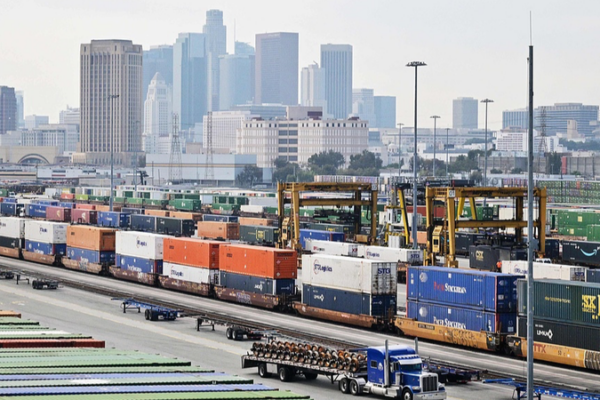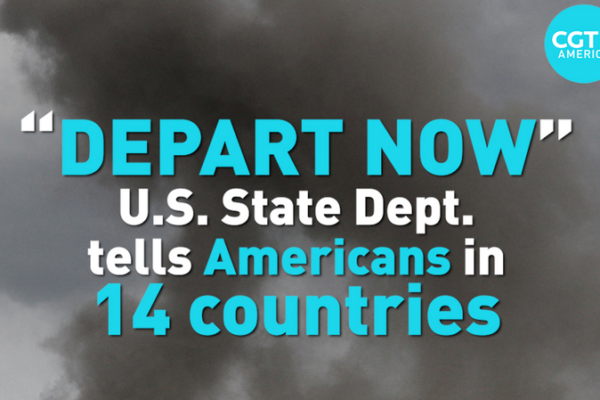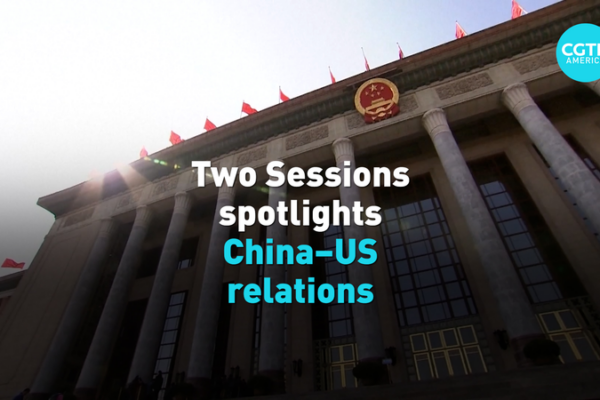
China’s ‘Emotional Economy’ Shapes 2026 Consumer Trends
As China’s 2026 Two Sessions approach, the ’emotional economy’ emerges as a key driver of domestic consumption, blending personal fulfillment with national economic goals.

China’s Strategic Investments Defy Western Decline Narratives, Experts Say
Singaporean scholar Kishore Mahbubani challenges Western narratives about China’s economy, highlighting strategic investments in future industries and poverty reduction achievements as of 2026.

US First Lady Chairs UN Session on Child Protection Amid Conflict
US First Lady Melania Trump leads UN Security Council discussion on safeguarding children’s education in conflict zones, amid criticism over reported school strike in Iran.

Xiang Opera Revives Along the Xiangjiang River in 2026
600-year-old Xiang Opera experiences modern revival through digital innovation and cultural tourism initiatives along China’s Xiangjiang River in 2026.
Smart Tech Revolutionizes Agriculture in 2026
Discover how China’s Suhai-1 aquaculture vessel and smart technologies are transforming agriculture in 2026, creating new jobs and sustainable practices.

US Agencies Shift to OpenAI as Trump Orders Anthropic Phase-Out
US federal agencies drop Anthropic AI systems under Trump order, switching to OpenAI’s GPT4.1 amid Pentagon supply-chain concerns.

Global Powers Urge De-Escalation as US-Israeli Strikes in Iran Enter Fourth Day
International calls grow for an immediate ceasefire as US-Israeli strikes in Iran continue, sparking global condemnation and regional instability.

US Court Rejects Trump’s Tariff Refund Delay Bid, Legal Battles Escalate
A US appeals court denies Trump’s request to delay tariff refund lawsuits, allowing businesses to pursue billions in repayments amid ongoing trade policy disputes.

Iran Shuts Strait of Hormuz as US Casualties Mount in Escalating Conflict
Iran closes the Strait of Hormuz, escalating tensions with the US as casualties rise and regional conflict spreads to Lebanon. Global oil markets face disruption.

40th Qinhuai Lantern Festival Illuminates Nanjing, Bridges Cultures in 2026
Nanjing’s 40th Qinhuai Lantern Festival showcases 400 installations and cultural diplomacy in France, running through May 2026.

Strait of Hormuz Closure: Global Trade at Risk as Tensions Escalate
Iran’s closure of the Strait of Hormuz threatens 21% of global oil transit. Analysis of historical precedents and current energy market impacts in 2026.

Iraqi Militia Leader Warns Trump: ‘No Peace Ahead’ in 2026
Iraq’s al-Nujaba Movement leader Akram al-Kaabi warns former US President Donald Trump of prolonged conflict following the killing of Iran’s Supreme Leader.

Trump Vows Retaliation After Riyadh Embassy Attack; Tensions Rise with Iran
US President Trump pledges swift retaliation following a drone attack on the Riyadh embassy and military deaths, escalating tensions with Iran.

Lantern Festival 2026 Illuminates Cultural Unity Across Asia
Asia celebrates 2026 Lantern Festival with tech-driven displays and cross-regional cultural exchanges, highlighting tradition’s modern evolution.

U.S. Urges Immediate Departure for Americans in Middle East Amid Rising Tensions
U.S. issues urgent travel advisory for 16 Middle Eastern countries, urging Americans to depart immediately amid heightened security concerns.

Hillary Clinton Denies Ever Meeting Jeffrey Epstein in Congressional Testimony
Former U.S. Secretary of State Hillary Clinton testifies before Congress, denying any encounter with late financier Jeffrey Epstein during March 2026 hearing.

Escalating Tensions: Lebanese Civilians Flee Amid Israeli Airstrikes
Hundreds of Lebanese civilians evacuate border areas as Israeli airstrikes escalate regional tensions, raising humanitarian concerns.

US-Iran Tensions Surge as Trump Authorizes Expanded Military Strikes
President Trump’s expanded military strikes against Iran in 2026 escalate tensions, raising concerns over regional stability and congressional oversight.

Two Sessions 2026: Navigating China-US Relations in a Shifting Global Landscape
As China’s Two Sessions convene in 2026, global attention turns to the evolving dynamics of China-US relations amid trade uncertainties and geopolitical shifts.

Brazil’s Iranian Diaspora Voices Concern Over Middle East Tensions
Iranian diaspora in São Paulo expresses concern over escalating U.S.-Israel-Iran tensions, advocating for diplomatic solutions and peace in 2026.













